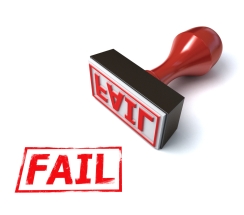Hi blog followers
I have moved my blog to my webpage. My most recent blog is here.
If you would like to keep following my blog, please sign up at my website. I promise not to spam you. Thanks for all your comments and support.
Yvette
Hi blog followers
I have moved my blog to my webpage. My most recent blog is here.
If you would like to keep following my blog, please sign up at my website. I promise not to spam you. Thanks for all your comments and support.
Yvette
Getting the basics right is fundamental to being a respected leader. Do you say these five things everyday?
Hello
I am amazed at the number of leaders that do not greet their staff everyday. When I have run focus groups with employees, time and time again, I have heard employees say that their manager does not greet them in the morning, even though they share the some office (and sometimes sit 2 metres away!). The employees say they feel ignored and not respected as their manager overlooked this simple act of human connection.
A simple “Good morning” acknowledges your colleagues, wishes them well for the day, does not take loads of time out of your day and let’s the people around you know that you appreciate them being there.
Please
Yes, you are the boss. Yes, people have to do things just because you asked them. When you forget to say “please” you are giving them an order and reminding them of the power difference in your relationship. But, they already know that you are the boss and there is a power difference.
Sometimes managers confuse saying “please” with begging. Saying please to a colleague acknowledges that their emotional energy, commitment and respect are theirs to give. It’s also good manners. Begging is begging.
Thank you
I have heard loads of managers say, “why should I say thank you to someone for doing their job?” If coming to work was all about a transaction of wages and employee outputs then they have a good point. However, as we have not yet been replaced by robots, then saying “thank you” acknowledges the human effort that went into the task.
Again – just good manners.
I’m sorry
Own it. We all make mistakes. Everyday. This is the hardest of the 5 as this requires us to swallow our pride. Gulp. Yet the power of a sincere apology is immense in healing hurts, creating connection, building trust and gaining respect.
Goodbye
Like saying “hello”, saying “goodbye” is an important daily ritual. We bless the other person’s going and coming, wishing that they may be well while away. What a great way to end the day. Leaving before your team, also sets a great example of work/life balance, too.
Great leaders set inspiring vision, grow talent, give feedback, …. but without these five these actions are pretty hollow because at the core of leadership is connecting as a human to another human.
Have you had a leader that didn’t do these 5 things? Did you respect them? Are there any you need to work on?
I learnt these magic 5 from a wise women. There is one for each finger. She said they were the 5 rules her family tried to live by. Why not try these habits at home, too.

“The first method for estimating the intelligence of a ruler is to look at the men (sic) he has around him.” – Niccolò Machiavelli
Machiavelli was referring to how loyal and competent a ruler’s team is. The ruler’s wisdom is reflected in her/his ability to select capable people and keep them loyal to him/herself.
Machiavelli’s insights are still useful today, however with the span of almost 500 years we can also look at this through an additional lens. Through research, and not just warm fuzzy feelings about inclusion, we know the more diverse a team, the more intelligent decisions the team will make. A diverse team has the ability to challenge my assumptions or perceptions. Nothing interesting starts with knowing.
So, the modern leader, not only needs the wisdom that Machiavelli refers to of choosing capable people, but also the wisdom to select a diverse team. There has been lots of emphasis placed on diversity that is visible – such as gender and ethnicity. And this is a great place to start. But, what about the diversity that is not visible – thinking differently? different personalities? political persuasions? religions? educations?
Working in a diverse team requires not just our functional expertise. We can no longer assume we have the same experience, same network and same perceptions as the rest of the team. Instead, we need a curious mind and a humble attitude. We need to be able to listen, really listen, collaborate, ask great questions, and think deeply.
Finally, each member of a diverse team has to provide unique value. When a team is diverse there is no room for passengers. So each person on the team has to be able to balance listening, with speaking up with insight… No pressure!
So, how would Machiavelli rate your team?

Recently I have had a number of conversations where people have said they are not empowered. And leaders should empower them. They were waiting. Waiting. Waiting.
I wondered what their picture of being empowered looked like. Would they be sprinkled in magic dust by the empowerment fairy and suddenly they had all they needed to achieve what they wanted?
Gloria Steinem says: Power can be taken, but not given. The process of the taking is empowerment in itself.
Steinem’s quote resonates for me. The process of empowerment is messy. It takes grit, risk and determination. You may have to upset the applecart. You certainly face hearing rejection. You also risk being successful.
We are not handed power. Each leader must make their power legitimate. A stroll through English monarchs reminds us that even a birthright is not a right.
Stephen Covey talks about circles of influence and circles of concern. When we focus on changing things in our circle of influence our power grows. When we focus on all the things outside our circle of influence that circle of influence actually decreases! By constantly looking at what we feel we cannot change we become victims.
If you are waiting to for the empowerment fairy, why not try this experiment? Ask yourself:
Would love to hear your stories.

With many children returning or starting school this week, my mind has turned to how we learn. In particular, how and when we learn to fail.
At early years, our kids learn that getting something “wrong” is bad. Our brains are wired to listen to fear more than reward and we play it safe. So, it is no wonder that when we get to the workplace we arrive with a strong aversion to failure.
We are surrounded by systems that demand perfection. We want customers to have a perfect experience – 100% of the time. We want products that are perfect or we want a refund. We want shareholders to get healthy and ever growing dividends. We want trains to run on time. Our “reality” TV “actors” have white teeth and wake up perfect hair. Our Facebook poses must be perfect and natural. Even our bananas have to be blemish free.
Yet the enduring adage of successful innovators is to fail fast, fail often, fail forward, fail cheap, ….
Learning to fail takes self awareness, self control, reflection, humility, resilience, humour, graciousness, vulnerability, patience and an appetite for risk. Sometimes, failure can be served with a side dish of anger, frustration, self loathing, shame, guilt and sleepless nights.
Our reality is that we are caught in a conundrum – working in a system that generates operational excellence to be successful today but knowing we must innovate (and fail) to be successful tomorrow. We have to be ambidextrous. It takes wisdom to know when to be “perfect” and when to fail.

Happy new year!
As we brush the sand off our swimmers and slip back into work attire, many are asking themselves, “Can I really do another year of this?”
When it comes to work, my philosophy is that there are really only three options. You can love it, change it or leave it. There is not a fourth option to half-heartedly sit on the fence and whinge about your boss, your colleagues, your workplace, your customers, your salary, …
Having a whinge about work is safe and costs you nothing. You don’t have to take a risk. You don’t have to manage the disappointment of putting your heart into something to discover your efforts may fail. You don’t have to risk giving your manager feedback about what might work better for you. But living in a whinging safe place can trap you into becoming that person at work who is negative, critical, unadventurous, lacks innovation and does just enough to stay under the radar. Over time the whinger can become become toxic. Is that really who you are?
So, before you take the train to whingeville. How will you stay energised in 2017?
Love it
Not feeling the love? So, what do you need to change?
Change it
Not able to change what you need to? What is stopping you from leaving? Are those things really stopping you?
Leave it
If you lead a team, why not kick off the year by asking the team what they love or what they need to change to grow their energy. Instead of asking “why don’t you leave?” (and risking a constructive dismissal claim), consider empathetic ways to ask if there are options other than loving it or changing it that are sustainable.
So, what will you choose in 2017?
